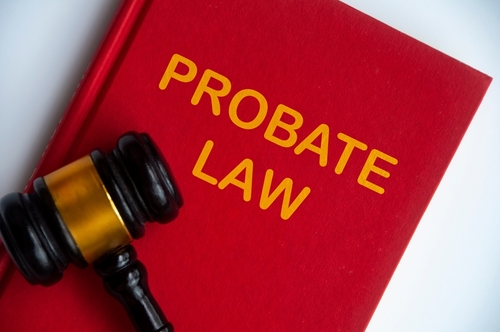An executor is a person named in the last will and testament of a deceased person or testator to manage their estate after they die. If there is no will, then the court will need to appoint someone to manage or administer the estate. This person, the administrator, will oversee the estate when there is no will, if the will does not name an executor, or if the executor is unwilling to serve as the executor. An executor and an administrator serve the same purpose.
Some states do not differentiate between executor and administrator. Instead, they refer to the person who oversees the estate as the personal representative.
What is an administrator?
If a person dies without a will, a situation known as dying intestate, or has a will but no willing executor, the court will need to appoint someone to manage or administer their estate. An estate is defined as all the assets, debts, and property owned by the decedent.
The probate court appoints an administrator to oversee the distribution of the decedent’s assets and properties to their rightful heirs, as well as the payment of their debts and taxes.
An administrator will gather and inventory all the deceased person’s assets and properties. They will notify any interested parties, including creditors, heirs, and beneficiaries, of the death. The administrator will pay the deceased person’s debts, selling assets and property as needed if there is insufficient cash available. The administrator will also pay state, federal, and property taxes that are owed. Once these debts and taxes are settled, the administrator will pay the court fees and distribute the estate assets and property to the heirs.
If an administrator does not have a will to work from, they will need to base all their decisions on statute. The administrator will have the challenging job of locating all potential heirs and determining who is legally entitled to the property. The heirs may be required to prove their relationship to the decedent in a kinship hearing. Additionally, the administrator needs to handle any challenges regarding the distribution of the estate.
What is an executor?
An executor is a person named in the will whom the decedent has entrusted with managing their estate after they die. The executor will file the will with the probate court and complete the forms that initiate the probate process.
After filing the will, the executor will file a notice to creditors, giving them time to file a claim against the estate. The executor is responsible for paying the estate’s debts using the estate’s assets. The executor also notifies the beneficiaries and heirs. Once all the debts and taxes have been paid, the executor will request permission from the probate court to distribute the remaining assets.
The executor has a fiduciary duty to follow the will’s instructions and act in the best interests of the beneficiaries. They do not have the power to alter the will or change who receives assets or property from the estate. The executor should keep meticulous records. The probate court may review their decisions and they must comply with state law.
How can you avoid needing an administrator?
If you have a will and have named an executor, the court will probably appoint your preferred executor when the will is probated. The court may override your choice if the executor is not of legal age, is deemed incompetent, or, for some reason, cannot fulfill the role of executor.
Choose an executor whom you know and trust. It is a good idea to talk with the person you choose as your executor to ascertain whether they are willing to step in and serve as the executor of your will. Since this person may predecease you, it is also a good idea to name an alternate executor.
What’s the difference between an administrator and an executor?
Administrators and executors fulfill similar responsibilities when managing a deceased person’s estate. An executor is named in the will. The probate court appoints an administrator if there is no will or willing executor.
Neither administrators nor executors can change the will if there is one available. They both have a responsibility to the beneficiaries and can be sued by the beneficiaries. Both administrators and executors can be compensated for their work in settling the estate.
If you have questions about your estate plan and choosing an executor or want to learn about how to protect your assets and property with a comprehensive set of estate planning tools, contact us.
You can schedule a call with us or reach us directly at 855.631.3457 to learn more about how to best plan today to protect those most important to you.








